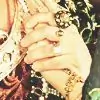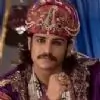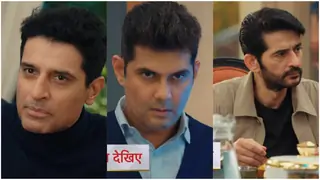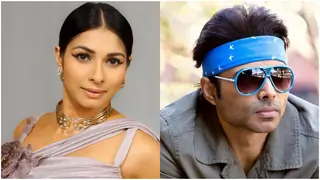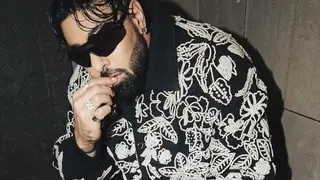Matani being Chhatrasal's lovechild is a legend. Sources stating this have no historical veracity.
The records about the origin of the Nawabs of Banda simply hint at Bajirao being presented a Qubool Surat (beautiful) woman after having assisted Chhatrasal against an attack by Bangash. Had Mastani been Chhatrasal's daughter why would she refer to him as Kakaju (paternal uncle)? The word Kakaju was an affectionate term used in correspondence between Bajirao and Chhatrasal's sons because Chhatrasal had insisted on an agnatic relationship with Rau for political reasons- to ensure continuing Maratha protection for his borders. Chhatrasal had also established such agnatic relations with other important leaders for the same reason.
Bajirao negotiated a tribute, including a part of Chatrasal's kingdom to compensate the Maratha king Shahu for military expenses and the cost of providing security to Bundelkhand. This was a standard practice but was mistaken for Mastani's dowry. In fact the money went to Shahu's treasury, not to Bajirao.
In novels about Mastani writers refer to her as royal born and being pampered by Chhatrasal's sons.There is no historical document supporting this. If Mastani was a Rajput king's daughter she would have been married off at age 8-9 before she obtained puberty, put in purdah and would never be trained to sing and dance like a professional entertainer. There are clear references to Mastani performing on occasions of Janmashtami and Ganesh festival in Shaniwarwada in the Peshwa Daftar, and she is referred to as Rau's khasgi kalavantin (privately maintained dancing girl). Anyone with knowledge of Maratha history knows this much. Had she been a Rajput princess she would never come out of Purdah and perform. Dancing was not a Pranami devotional practice.
Had Mastani been a Rajputni of the Pranami sect why was Shamsher brought up Muslim?
In 1729 when Bajirao defended Bundelkhand he was 29 years old. Chhatrasal was nearly 80 and Mastani was about 16. Thus when she was born Chhatrasal would be 65-66 years old.
Though Mastani had a place in Bajirao's heart he only built her a separate apartment in order to elevate her status after she bore him a son. The Peshwa family did not approve but gave tacit agreement to the arrangement. Differences flared up only after Bajirao took to drinking and eating meat when in Mastani's company, turning away from Kashi and her kids. Had he continued to maintain relations with both women and controlled his drinking the story would have been different. It was not wrong for his mother and brother to try and restrain him from his self-defeating habit.
Radhabai being ambitious is consistent with the rise of her husband from a mere salt works revenue collector to the Peshwa of the Maratha Empire. She brought up her children single handedly and mentored her sons and grandson Nana, the next Peshwa after Bajirao. Do not belittle her by calling her a power hungry woman, her authority was charismatic, not position-related.
Edited by kahiliginger - 8 years ago











